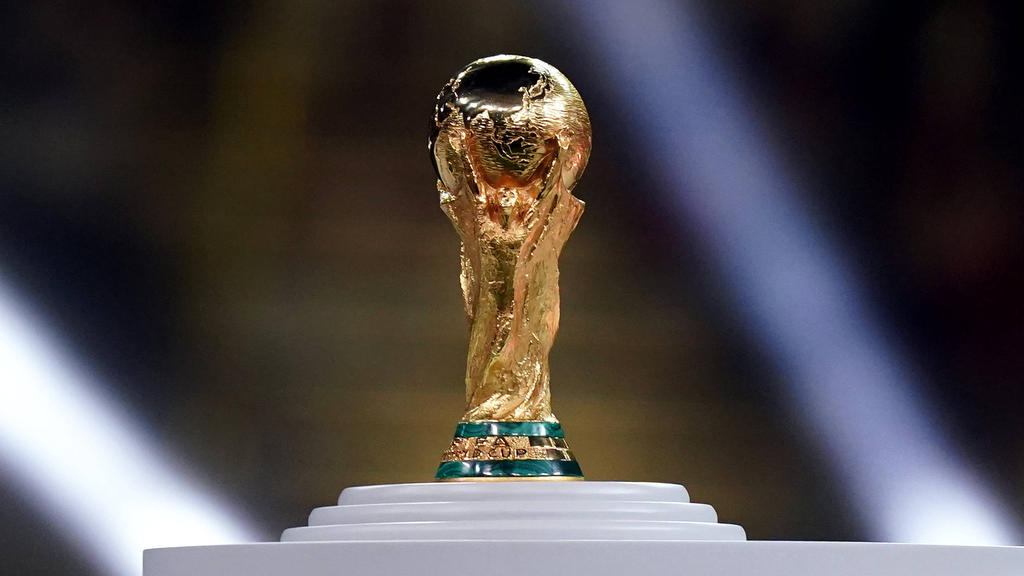Saudi Arabia only bidder for 2034 World Cup

Saudi Arabia is in line to host the 2034 World Cup after FIFA announced that the kingdom had submitted the only "expression of interest" in hosting the tournament.
The decision will be ratified officially at the end of next year, providing all of the technical criteria are met.
Saudi Arabia, which has invested heavily in football as well as Formula One and golf, is set to take over from an unprecedented tri-continental line-up for the 2030 event, which will be shared between Spain, Portugal and Morocco, with three matches in South America.
The bid comes one year after neighbouring Qatar hosted the first World Cup in the Middle East, where the Saudi national team scored a stunning group stage victory over eventual winners Argentina.
At this point, only "expressions of interest" have been submitted.
After the full bids for 2030 and 2034 are handed over, they will be evaluated by FIFA and put to a vote at two separate congress meetings at the end of 2024.
But the absence of any competition leaves little room for suspense, while also raising numerous questions about the environmental impact of the 2030 event and the compatibility of the 2034 tournament with FIFA's human rights commitments.
Saudi Arabia was initially interested in bidding for the 2030 World Cup alongside Egypt and Greece but that idea was abandoned in June, leaving the path open for the tri-continental bid.
Saudi Arabia announced its intention to bid for the 2034 event on October 4, as soon as the procedure had been launched.
As a result of the continental rotation, FIFA had only "invited" member countries of the Asian and Oceanian confederations to apply -- thus ruling out the traditional footballing heartlands.
At one stage, Indonesia had considered a joint bid with Australia, or even other countries such as New Zealand, Malaysia and Singapore, but on October 19 it agreed to support Saudi Arabia's bid.
Australia, which successfully hosted the Women's World Cup this year, was also a contender but withdrew its interest on Monday following the Asian Football Confederation's decision to back the Saudi bid.
Acquiring the rights to host the World Cup, a policy which emanates directly from Crown Prince Mohammed bin Salman, would be the latest step by Saudi Arabia to plant itself firmly in the centre of the sports world and, according to its detractors, divert international attention from its human rights violations.
The country is already preparing to host the next Club World Cup at the end of December and the 2027 Asian Cup.
It is also behind the breakaway LIV golf, hosts major boxing matches and horse races and its football clubs have started signing up some of the biggest names in world football, including Ballon d'Or winners Cristiano Ronaldo and Karim Benzema.
More surprisingly and widely criticised, the kingdom will host the 2029 Asian Winter Games in a futuristic complex under construction in Neom.
By securing the world's most popular tournament, however, the kingdom faces an even bigger job than its neighbour and sometime rival Qatar, the surprise host of the 2022 World Cup.
The tournament will no longer be a 32-team event. From 2026, 48 teams will be present at the finals.
According to FIFA, that means 104 matches which require "a minimum of 14 stadiums" with between 40,000 and 80,000 seats and at least "72 base camps".
While there is little doubt about its financial capacity, questions have been raised about the Saudi Arabia's ability to meet FIFA's commitment to "respect internationally recognised human rights" in its competitions.
Criteria like environmental sustainability are included in the award procedure but, given there are no other options, it may not matter.
"With only a single bid for each tournament on the table, FIFA may have scored an own goal," Steve Cockburn, Amnesty International's Head of economic and social justice, said in a statement.
"FIFA must now make clear how it expects hosts to comply with its human rights policies. It must also be prepared to halt the bidding process if serious human rights risks are not credibly addressed."
In a separate statement, Human Rights Watch called on the world body to "postpone" the awarding of the World Cup in 2034, saying it had "failed" to conduct an "ethical, transparent, objective and impartial" process.





